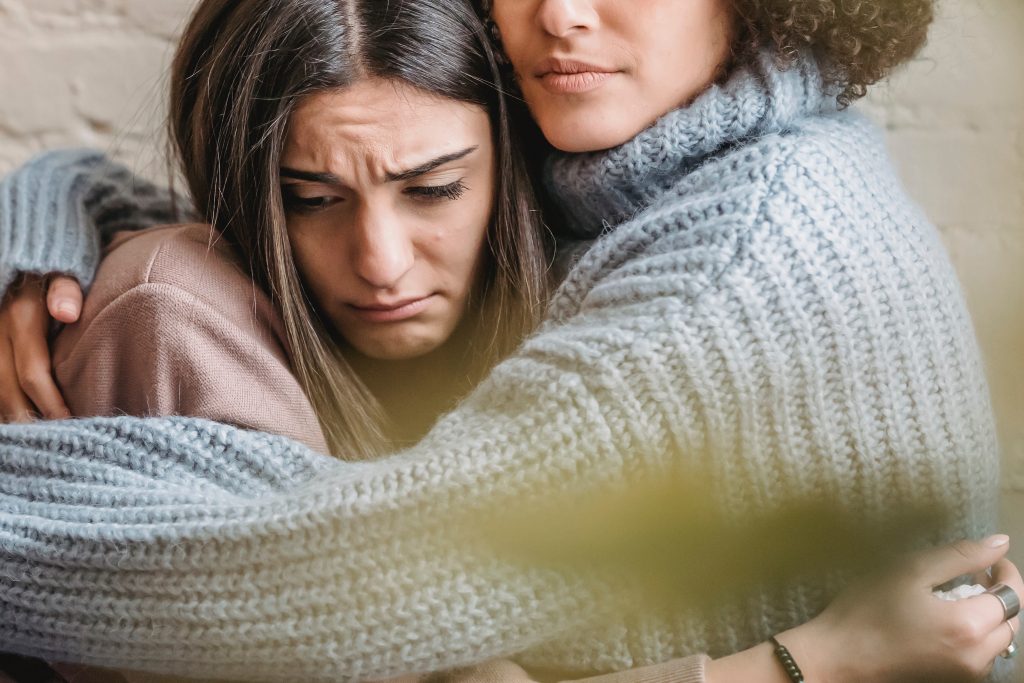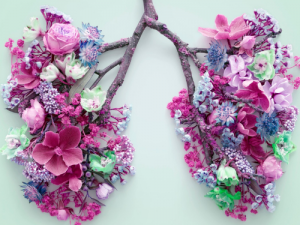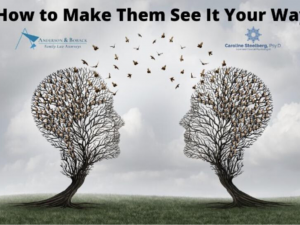
A Covid-19 Related Memory
On January 6th 2021, I passed through the living room on my way out the door to a dentist appointment. The TV was on and a strange sight caught my eye. Armed agents were poised with their guns, in front of a solid, wood door inside the United States Capitol Building. Simultaneously, my heart started to race and my thoughts became jumbled trying to make sense of the situation.
Could whatever was going on seven hundred miles away in Washington D.C. affect me?
My mind flashed to the Oak Street curve, a section of Lake Shore Drive in Chicago that I’d need to drive on the way to the dentist. Fear took over me as I remembered coming around a bend, traffic slowing, and stopping altogether at the curve for protesters, a day or two after George Floyd’s death last May. The protesters turned out to be a peaceful group, but for 20 minutes, while being stuck in my car, I waited, watching, to see what would happen next. Even though these events were unrelated to whatever was unfolding at the Capitol, my senses perceived that driving to the dentist’s office was potentially, personally dangerous. Already on heightened alert after months of uncertainty due to the pandemic, and ongoing political and racial unrest, my mind and body signaled me to stay safely at home. I cancelled my appointment and spent the rest of the afternoon glued to the TV, watching the insurrection.
What will your body remember about the Covid-19 pandemic?
Our bodies are good historians when it comes to traumatic events and experiences. They do not rely on our ability to communicate in words alone but take into consideration all of our senses. What have you seen, heard, smelled, tasted, and felt during the pandemic? Have you experienced stomach aches, headaches, sleeplessness, distress over the lack of physical contact? According to Bessel Van Der Kolk, a psychiatrist and author of The Body Keeps Score, “All trauma is pre-verbal.” He goes on to state that, “Even years later, traumatized people often have enormous difficulty telling other people what has happened to them. Their bodies may reexperience terror, rage and helplessness, as well as the impulse to fight or flee, but these feelings are almost impossible to articulate.”
Furthermore, Van Der Kolk reports that “Trauma by nature drives us to the edge of comprehension, cutting us off from language based on common experience or an imaginable past.” What about collective trauma? Trauma that our world has experienced together? Can we talk about that in a single comprehensive manner? Van Der Kolk reports that each of us comes up with our own “cover story” in the aftermath of acute events or chronic traumatic experiences. Instead of sharing the “inner truth” of our experiences, we script a narrative for “public consumption.” (Van Der Kolk, 2014)
What words will you choose to tell your stories about the Covid-19 pandemic?
If you are able to put your experience into words, it turns out that the words we choose matter when we recall traumatic experiences. The experimental psychologist Elizabeth Loftus’s “career has been defined by her recognition that the language we use to describe an event will change the way we remember it.” (Aviv, 2021). In the article Past Imperfect (2021), Loftus gives an example of an experiment where people estimated the speed of a car based on whether she used the word “smashed” or “hit.” You can guess which cars appeared to go faster. She determined that the brain is “malleable” and open to suggestion, depending what words we use. Additionally, according to James Doyle who co-authored a book with Loftus, her research “obliterated the idea that there is a permanent, stable memory capacity in humans” (Aviv, 2021). The words that we chose positive or negative, emotionally laden or emotionally benign, shape our memories. As Loftus suggests, the words we ascribe to what we remember may be more meaningful than the accuracy of the memory itself.
Who will give credibility to our pandemic stories?
The American Psychoanalytic Association’s COVID-19 Advisory Team has given the name to the experience of living through the pandemic the Pandemic Trauma and Stress Experience (PTSE). As reported in The National Psychologist (2021), the APsaA’s team states that “Everyone is accumulating some version of PTSE, some form of stress and trauma brought on by the pandemic.” Further, they clarify that “Aspects for individuals include fear for the future, extreme weariness, withdrawal and isolation, grief and closer ties with family members.”
“Languishing” is another term that has been used to label the “sense of stagnation and emptiness” attributed to the pandemic. Adam Grant, an Organizational Psychologist, describes it as feelings “as if you’re muddling through your days, looking at your life through a foggy windshield.” (Grant, 2021). As we start to reconnect with the social and environmental world, FOGO (the fear of going out) is beginning to affect people as they have the option to return to work and gather in small groups. (Rockett, 2021). These labels may be useful and provide shorthand for identifying, describing and potentially treating the symptoms related to PTSE.
Who will listen as you talk about your Covid-19 pandemic experiences?
As we begin to engage with each other again in person, I believe it is important to talk about our experiences of Pandemic Trauma and Stress Experience. Symptoms can be treated but trauma remains in the body unless it is metabolized and integrated into our being. What does this mean for each of us?
I believe it is important to share our stories, put words to our experiences, allow ourselves to be vulnerable in expressing our “inner truth”. Grant states that “Psychologists find that one of the best strategies for managing emotions is to name them.” (Grant, 2021).
When I returned to my dentist last week, for a final follow-up appointment, pandemic stories were on my mind. I asked him about his experience as a dental surgeon during the pandemic. He thought about it for a moment and responded “No one died.” No one died? Excuse me? Was this a punchline, strategically placed before the joke? I thought he was going to tell me that more people were grinding their teeth! As I prepared a retort, I suddenly realized that he was not joking. “No one died.” None of his patients had died from Covid-19. I felt deeply and emotionally moved by his heartfelt response. I’d asked the question and he’d responded truthfully, with what came to mind and what was important to him. The doctor and I won’t meet again, there is no need, but in this brief exchange, we shared a moment of intimacy and understanding. Dare I say a healing moment for each of us.
References
Aviv, R. (2021). Past Imperfect. The New Yorker, April 5, p. 28-39
Grant, A. (2021). There’s a Name for the Blah You’re Feeling: It’s Called Languishing. The New York Times
Https://www.nytimes.com/2021/04/19/well/mind/covid-mental-health-languishing.html
Pandemic Effect Now Has a Name. The National Psychologist, Spring, 2021, p. 3
Rockett, D. (2021). Reopening Plans Cause Mixed Emotions. Chicago Tribune, April 18, Section 6, p.5
Van Der Kolk, B. (2014). The Body Keeps Score, Penguin, p. 43



![[VIDEO] How to Make Them See It Your Way – Communicating with Your Ex About Parenting Decisions](https://carolinesteelberg.com/wp-content/uploads/2020/05/Caroline-Steelberg-Youtube-Thumbnail-300x225.png)
